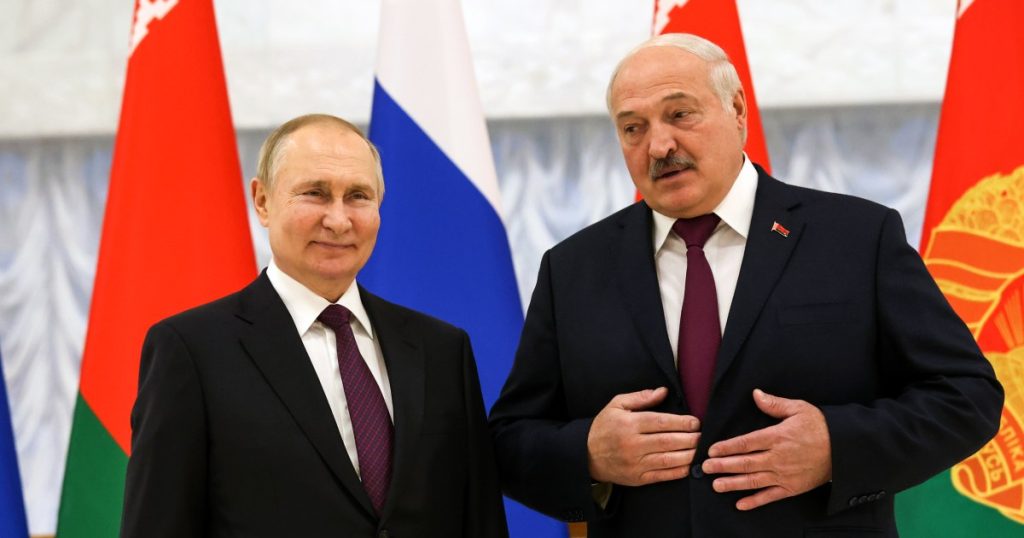The Iskander-M contains two guided missiles with a range of up to 300 miles and can carry conventional or nuclear warheads.
Putin said that Belarusian President Alexander Lukashenko had long requested the deployment. There was no immediate reaction from Lukashenko.
Belarus, Ukraine and Kazakhstan had nuclear weapons stationed on their territory but handed them over to Russia after the 1991 collapse of the Soviet Union, so this could be the first time since then that Russia has based such weapons outside the country.
American reaction to Putin’s announcement was muted. National Security Council spokesperson Adrienne Watson told NBC News late Saturday that the U.S. had “not seen any reason to adjust our own strategic nuclear posture nor any indications Russia is preparing to use a nuclear weapon.”
But Oleksiy Danilov, the secretary of Ukraine’s National Security and Defense Council, tweeted that the Kremlin “took Belarus as a nuclear hostage.”
While the Belarusian army has not formally fought in Ukraine, the country has a close relationship with Russia, and Minsk allowed Moscow to use its territory to send troops into Ukraine last year. The two nations have stepped up joint military training. Russia is also Belarus’ largest and most important political and economic partner.
Calling Russia’s nuclear rhetoric “dangerous and irresponsible,” a NATO spokesperson said the organization was “closely monitoring the situation.”
“We have not seen any changes in Russia’s nuclear posture that would lead us to adjust our own,” it said. “We are committed to protect and defend all NATO allies.” NATO added that Moscow had “consistently broken its arms control commitments,” most recently suspending its participation in the New START Treaty — a key nuclear arms control treaty between the U.S. and Russia, the world’s two largest nuclear powers.
Hamish de Bretton-Gordon, a former commanding officer of Britain and NATO’s joint chemical, biological, radiological and nuclear regiment called the plan a “strategic error” and “another sign of desperation coming out of the Kremlin,” after 13 months of war in Ukraine and few victories to show for it.
“It seems that Putin is clutching at straws,” he said, adding that Russian forces had been “hammered” around Bakhmut, where brutal battles for control of the eastern city have raged for months, with neither side gaining much ground.
Moving such weapons closer to NATO nations like Germany, Poland and Lithuania was likely to “hasten Western weapons” to Ukraine, he said. Germany, which has previously been cautious about providing military aid to Ukraine, “might be encouraged” by the potential threat of closer nuclear weapons, he added.







